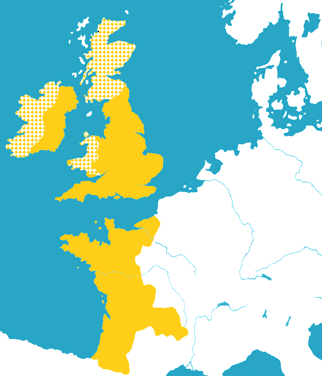It shouldn't. Before conquering England, William the Bastard was Duke of Normandy, a political entity that had been separate from West Francia (by 1066, the Kingdom of France) since 911 C.E. The Normans spoke a dialect of French, and William and his ancestors were technically vassals of the kings of France, but it was still more or less a separate entity.
Once William took the crown of England, he ruled both as King of England and Duke of Normandy, but he kept the administration of the two states entirely separate, and after his death he divided the two states between his sons Robert and William, who became Duke of Normandy and King of England respectively. Throughout this period, I don't think you can really call England a colony of either France or Normandy. Even later on, when Henry II established the unified Angevin state that included all of England and much of modern France, both his British and continental holdings were equal parts of a single kingdom, so the colony concept doesn't quite work here.
edit: Even though England was ruled as a separate kingdom following 1066, there was in fact some resistance to Norman rule during William's reign, especially in northern England. Hereward the Wake, for example, led a rebellion against William and his imported Norman nobility around 1070, along with Morcar, the ousted earl of Northumbria. William's imposition of a new set of Norman nobles and his confiscation of lands from those who refused to recognize him as king were motivating factors in these rebellions, which were crushed a few years later. However, the divide between the ruled Anglo-Saxon and the ruling Norman classes continued to play a part in English politics.
